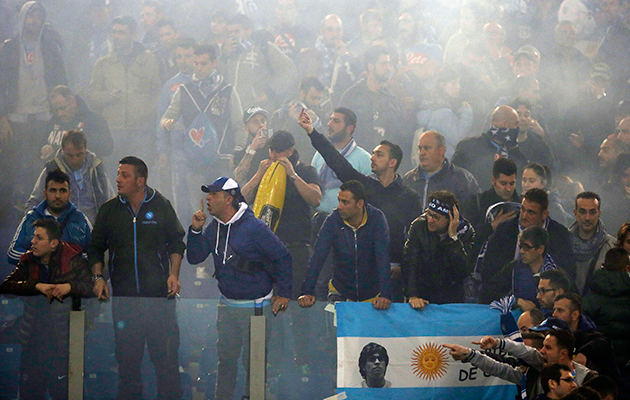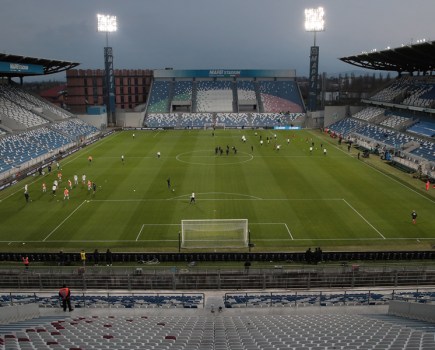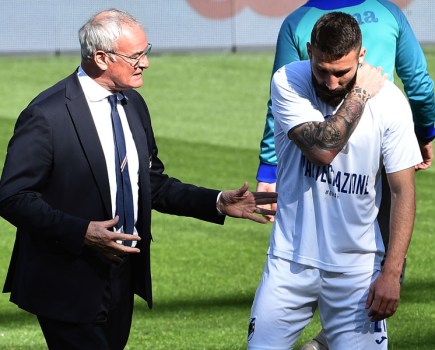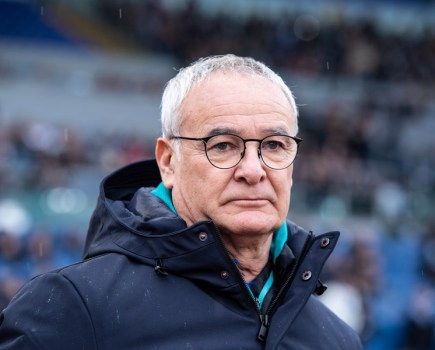Is there something rotten in the state of Italian football? That is the question due to be asked over the next two months by Italy’s parliamentary anti-mafia commission which will look into the thorny question of the infiltration (or attempted infiltration) of organised crime into Italian football.
Between now and March 24, the Commission is scheduled to hold a series of hearings not just with mafia investigating magistrates from Catania, Naples and Turin but also with the heads of the Football Federation and Football Leagues. Furthermore, the Italian Players Association and the chief of the Federation’s own Federal Court will also testify to the commission.
This is not new territory for the commission. Last July, referring essentially to lower division Italian football, the commission concluded:
“The ever greater desire of individuals linked to organised crime to become part of club boards, especially in the lower leagues, is worrying…For organised crime, the world of football…represents a useful flywheel with which to attract electoral, economic and financial consensus”
The significant aspect of the forthcoming set of hearings is that they will not be concentrated on the lower leagues. As it is, there have been enough disturbing “incidents” in recent years involving top level clubs to prompt some uncomfortable questions. Above all, does organised crime attempt to muscle its way into football via its relations with elements among the diehard ultra fans at various clubs?
When police and Napoli club officials had to negotiate with Napoli fans on the night of the 2014 Italian Cup final, the night that saw the fatal shooting of Napoli fan, Ciro Esposito, the man they negotiated with, in full view of TV cameras, was Napoli ultra Gennaro De Tommaso. Better known as “Genny The Scumbag”, De Tommaso is reportedly linked to the camorra, the Neapolitan mafia.
Other incidents prompt pause for thought. How come Antonio Lo Russo, son of camorra boss, Salvatore Lo Russo, was pitch-side for Napoli’s games against Parma, Catania and Fiorentina, as revealed by press photos, during the 2009-2010 season? Or how come, the Genoa ultra were able to stop a Genoa v Siena game in April 2012 on a 4-0 losing scoreline and then insist that the players hand over their “dishonoured” team shirts? Or how come, Roma fans were able to climb onto the Olimpico pitch on the March 2004 night of the Rome derby v Lazio and “forcibly” persuade Roma captain Francesco Totti and his team mates to abandon the game. And all of this because of a false rumour about the death of a child in clashes between fans and police.
Even the Old Lady, the great aristocrat herself, Juventus, now finds herself touched by the “ultra” problem. Both Turin prosecutors and the Football Federation are currently investigating the attempted infiltration of Juventus “activities”, in reality ticket sales, by the ‘nDrangheta, the Calabrian mafia, the most aggressive and powerful mafia in modern Italy. Responding to Italian media reports last week, Juventus issued a terse statement:
“In light of certain articles published in recent days, Juventus Football Club and President Andrea Agnelli have entrusted the protection of their honour and integrity to lawyers.
“It is noted the Turin public prosecutor has recently concluded an investigation into certain families considered to belong to the n’drangheta, who have been charged with criminal behaviour and the attempted infiltration of some of the activities of Juventus Football Club.
“It was also noted that no employee or affiliate has been investigated in a criminal court. It is also noted that… the club has always co-operated by maintaining strict confidentiality to maintain the secrecy of the investigation.”
The Turin judicial investigation, known as “Alto Piemonte”, has not yet to come to court, whilst likewise the Federation’s enquiry has yet to issue its conclusions. Both enquiries will doubtless reveal more further down the road since the state enquiry is due for a preliminary hearing on March 23rd whilst the Federation investigation is expected to be closed before that date.
The commission may well want to ask the Turin magistrates about the suicide of Juventus ultra leader, Raffaello Bucci, who killed himself by jumping off an autostrada viaduct last July. The day prior to his death, he had testified to the Turin magistrates within the ambit of their investigation into n’Drangheta infliltration.
Contacted by World Soccer, Juventus vehemently rejected any allegation of wrongdoing by the club, urging commentators to await the outcome of the investigations.







